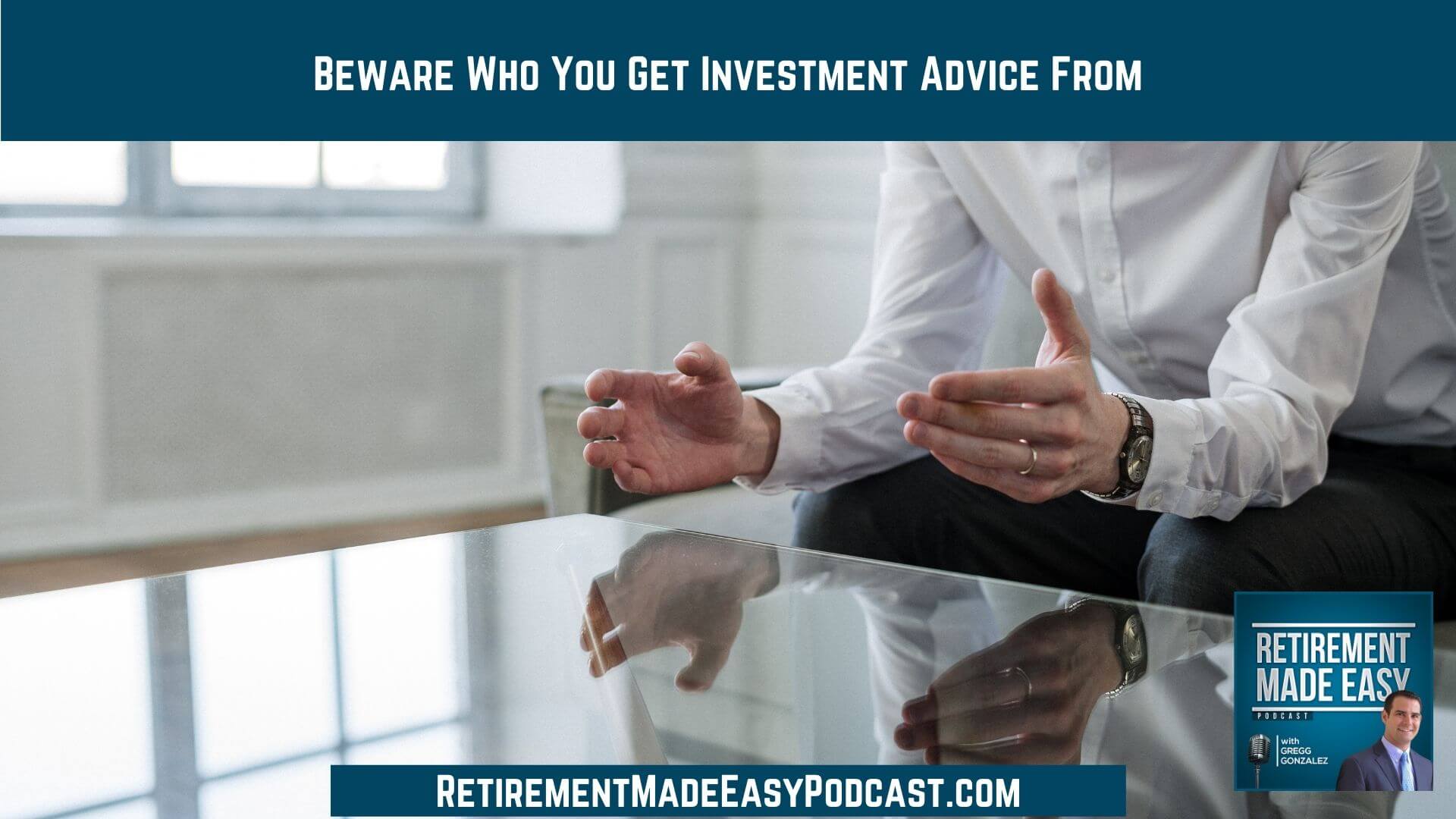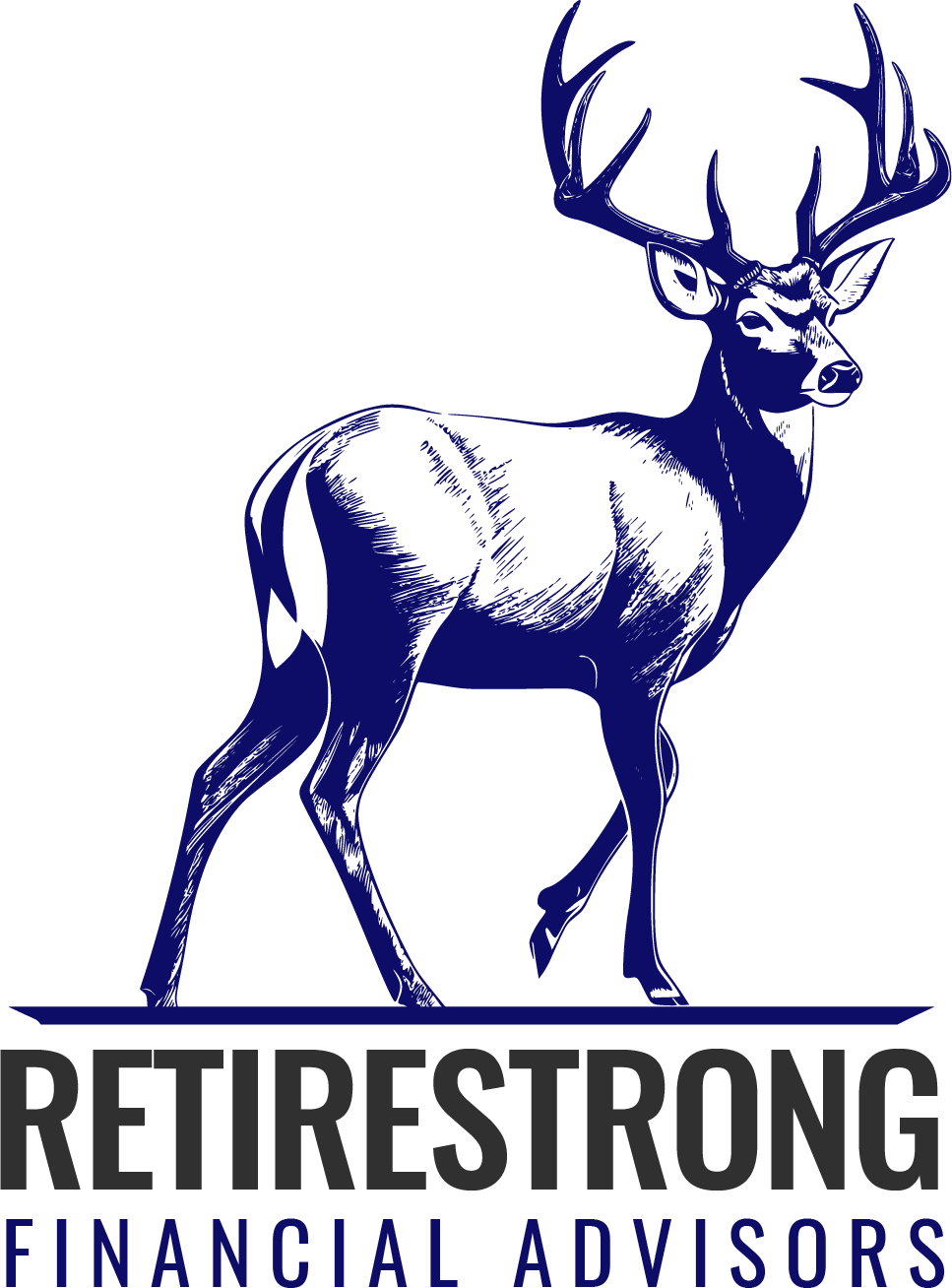
There were many articles published in August/September that were predicting a big stock marketing crash to come in October. In October 1929 and 1987, there were huge stock market crashes. 1987 was 34 years ago—what does it have to do with this stock market?
Supposed “experts” predicted that we were supposed to get the biggest crash we’ve ever seen in October 2021. So where is it? More importantly, what happened to the people who listened to that prediction and pulled money from their retirement accounts? I share why you have to be wary of where you get your professional advice in this episode of Retirement Made Easy.
You will want to hear this episode if you are interested in…
- [4:10] Be wary whose advice you listen to
- [8:19] Why the stock market is so volatile
- [12:00] The retirement bucket strategy
- [13:31] Never loan money you can’t live without
- [17:31] No one can time the market
What stemmed the market crash predictions
Robert Kiyosaki (the author of “Rich Dad, Poor Dad”) was interviewed in September and stated that he believed that we’d see the biggest crash in history this October. Why? Because of how the real estate market was doing in China. He thought it would spill over into the US and crash our stock market. A lot of people panicked.
Other “experts” predicted a similar market crash. As I’m recording this episode, we are more than halfway through October. The S&P 500 is up 4.75% so far. I’m not seeing a stock market crash plastered across the news—are you?
Be wary whose advice you listen to
As a word of caution, be wary of people trying to predict the next market crash. Robert Kiyosaki isn’t even qualified to make predictions. He only served to make people panic, doing more harm than good. Even worse, people likely sold out of their long-term investments and abandoned their retirement plans because this big market crash was on the horizon. Sadly, just like the weatherman isn’t held responsible for his or her predictions, these people aren’t held responsible for the damage they cause.
Why the stock market is so volatile
The nature of the stock market is to go up and go down. Volatility is normal. When you have to price something, you have to question what someone is willing to pay you for a stock at the current moment. Some days, it may be underpriced. Someone isn’t willing to pay as much.
Your home is an illiquid asset, right? What if you asked cash buyers to line up and you’d only accept the top bid you can get for your home? Some days cash buyers won’t be willing to give you what you think it’s worth. Some days people might line up to overpay for your house. But most people don’t look at the price they can get for their home daily, right? So why are we doing it with the stock market?
The markets open every day and stocks are priced every second. If we didn’t have to put such a liquid price on it, you’d see that over time the stock market seems to increase—just like the value of your home. Too many people focus on what the stock market does daily and that is simply out of your control.
On the way to reaching your goals, your investments will go up and down in value. That’s why you have to remain focused on your long-term plan. When sharp declines and short-term volatility happens, you can’t panic. Your portfolio was designed to accomplish your long-term goals for the next 30+ years.
Listen to the whole episode to learn why you shouldn’t loan money you can’t live without. If you loan a family member or friend money, I’ll share the right way to do it.
Resources & People Mentioned
- Episode #24: The Retirement Bucket Strategy
- Episode #7: The Worst Retirement Plan Ever
Connect With Gregg Gonzalez
- Email at: Gregg@RetireSTL.com
- Podcast: https://RetirementMadeEasyPodcast.com
- Website: https://StLouisFinancialAdvisor.com
- Follow Gregg on LinkedIn
- Follow Gregg on Facebook
- Follow Gregg on YouTube



